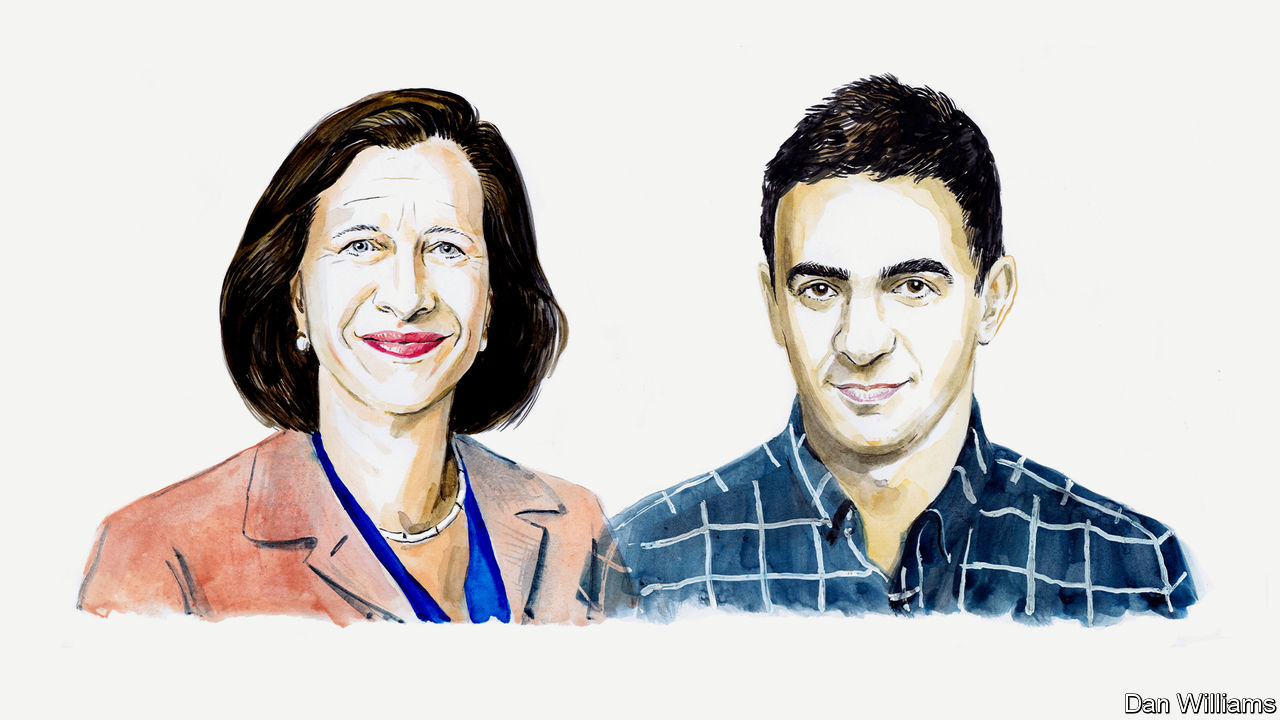Links
Dealing With Misinformation
,Over the past eighteen months, issues of trust and truth in the digital age have dominated discussion across industries and around the world. There has been a surge in conferences, reports and funding. However, despite this peak in interest in the subject, progress has been slow. One important realization yet to emerge is that shared […]
Verifying Online Misinformation
Building peace in the minds of men and women
Building peace in the minds of men and women
Internews Rumour Tracking Methodology
In a Communication released on 26 April 2018, the European Commission put forward an action plan and self-regulatory tools to tackle the spread and impact of online disinformation in Europe and ensure the protection of European values and democratic systems. The Commission proposes an EU-wide Code of Practice on Disinformation, support for an independent network of fact-checkers, and tools to stimulate quality journalism.
A New Application of Social Impact in Social Media for Overcoming Fake News in Health
Fake news, fast and slow: Deliberation reduces belief in false (but not true) news headlines
Experimental Evidence for a Scalable Accuracy-Nudge Intervention
Start building your very own text message microlearning courses with Arist. Learn small. Learn fast.
This is the first in a series of blog posts from the Credibility Coalition reflecting on workshops we led at MisinfoCon DC, held at the Newseum. We conducted these workshops over the course of 6…
Signals
This document is a primer for developing and improving technological methods to help promote trust and accuracy, especially on the web and involving news reporting. While not always comprehensive, it attempts to guide people away from overly simplistic designs and reveal a wide array of potential solutions. Impatient readers may want to start with section 10 (Promising Technical Approaches) or section 11 (Potential New Web Standards).
Schema.org is a set of extensible schemas that enables webmasters to embedstructured data on their web pages for use by search engines and other applications.
We can now be found on more than 200 news sites. It is the first global transparency standard that helps people know who and what is behind a story.
Our goal is to make it easier for people to collect, organize, find, visualize, and share their information.We are an interdisciplinary group of researchers blending approaches from human-computer interaction, social computing, databases, web infrastructure, information retrieval, artificial intelligence and the Semantic Web.
Vaccine Misinformation

Anna Russell writes about efforts to counter misinformation about the COVID-19 vaccine in the United Kingdom.
The majority of false claims about COVID-19 vaccines on social media trace back to just a handful of influential figures. So why don't the companies just shut them down?

Traditional health messages don’t convince the vaccine-hesitant, but there are digital techniques that can move the needle, say a UN official and a social entrepreneur
Last updated: 18 March 2020
Practical considerations relating to flows of information, misinformation and disinformation though online media, particularly social media networks.
,We can fight the "infodemic" together. Here are 5 quick things you can do to verify content online before you share.
Online news sources continue to grow as a primary source of information and misinformation. But private platforms like WhatsApp and Facebook Messenger are harder to monitor.
The importance of science and learning in dealing with coronavirus
Voting Misinformation
Climate Misinformation
By exploiting Americans’ trust in local media, polluters hope to squash their political opponents.
Journalistic Tools
#FightFakeNews
This book equips journalists with the knowledge to investigate on disinformation and media manipulation.
,As the world looks for timely, accurate news about the novel coronavirus, how can journalists best provide their audiences the information they need?
Building trust: what works for news organizations
Executive Summary News organizations are meant to play a critical role in the dissemination of quality, accurate information in society. This has become more challenging with the onslaught of hoaxes, misinformation, and other forms of inaccurate content that flow constantly over digital platforms. Journalists today have an imperative—and an opportunity—to sift through the mass of […]
Visualize the spread of information on Twitter.
A study finds small changes in framing and word choice can elicit significant changes in how skeptics engage with climate change news.
Identifying Misinformation
,As coronavirus misinformation continues to spread, knowing some basic methods for collecting and analyzing data is essential for journalists and researchers who want to dive under the surface of online information patterns. There is a mountain of data that can help us examine topics such as the spread of 5G conspiracy theories or where false […]
Newsgathering and Monitoring Digital Misinformation
Despite social platforms claiming to be committed to fighting climate change and tackling climate disinformation, researchers say otherwise. As outlined in this report from Stop Funding Heat, Facebook has failed to control its platform, with misleading viral content and fact-checking loopholes for opinion content. A report from Influence Map on Big Oil advertising on Facebook shows how […]
Facebook's own employees think its efforts combating misinformation on climate change are inadequate. Read the internal documents for yourself.
The Flow of Misinformation
Closed Groups, Messaging Apps, and Online Ads
Source Hacking details the techniques used by media manipulators to target journalists and other influential public figures to pick up falsehoods and unknowingly amplify them to the public.
Phil Tinline mines the long history of disinformation to identify techniques in use today.
Understanding Why People Believe Misinformation
Understanding Information Disorder
The Conspiracy Theory Handbook | Center For Climate Change Communication | George Mason University Foundation
New Data & Society ethnographic study illuminates conservative methods of fact-checking media; warns that search engines may facilitate disinformation
Pre-conference of 1st WHO Infodemiology Conference, highlights and documents from the conference; WHO Infodemic Management; managing the Infodemics; Infodemiology
The conference takes place from 29 June to 21 July 2020, it consists of 1 pre-conference event, 1 science conference session and 1 public webinar; Highlights and documents from the conference. WHO Infodemic Management; managing the Infodemics
,The psychology of misinformation — the mental shortcuts, confusions, and illusions that encourage us to believe things that aren’t true — can tell us a lot about how to prevent its harmful effects. Our psychology is what affects whether corrections work, what we should teach in media literacy courses, and why we’re vulnerable to misinformation […]
Sometimes when we believe something, we resist data that can change our minds. This week, we look at how we rely on the people we trust to shape what we believe, and why emotions can be more powerful than facts. This episode features new reporting and favorite conversations with neuroscientist Tali Sharot and philosopher of science Cailin O'Connor.
Social media have been "weaponized" with fake news to maximize social discord, writes Wharton professor Eric K. Clemons in this opinion piece. Why does it work so well?…Read More
Misinformation Studies
Publishing high quality interdisciplinary research that examines misinformation from different perspectives, from its prevalence and impact to the effectiveness of possible interventions.
In addition to the Casebook, the Technology and Social Change (TaSC) research team produces a newsletter, a webinar series, white papers, policy briefs, and research articles that focus on the wider sociotechnical landscape of media ecosystems and their relationship with civil liberties, democracy, and security.
Free, regular updates from the frontlines of the fight todefund hate speech and disinformation.
Théophile Lenoir on new avenues of reflection for thinking about how best to consider the problem of disinformation.
,Commissioned by the Council of Europe, our new report lays out a new definitional framework for thinking about information disorder, provides an overview of current responses, and summarizes key academic studies on how people consume information. It ends with thirty-four recommendations, targeted at technology companies, national governments, media organizations, civil society, education ministries and funding […]
Credibility Coalition aims to develop common standards for information credibility by incubating activities and initiatives that bring together people and institutions from a variety of backgrounds through a variety of activities.
Misinformation as a Practice
Ewige Blumenkraft!
Upon request by the United States Senate Select Committee on Intelligence (SSCI), New Knowledge reviewed an expansive data set of social media posts and metadata provided to SSCI by Facebook, Twitter, and Alphabet, plus a set of related data from additional platforms. The data sets were provided by the three primary platforms to serve as evidence for an investigation into the Internet Research Agency (IRA) influence operations. The organic post content in this data set has never previously been seen by the public. Our report quantifies and contextualizes Internet Research Agency (IRA) influence operations targeting American citizens from 2014 through 2017, and articulates the significance of this long-running and broad influence operation. It includes an overview of Russian influence operations, a collection of summary statistics, and a set of key takeaways that are then discussed in detail later in the document. The document includes links to full data visualizations, hosted online, that permit the reader to explore facets of the IRA-created manipulation ecosystem. Finally, we share our concluding notes and recommendations. We also provide a comprehensive slide deck accommodating a wide array of selected images directly from the data set illustrating our observations, and, as an appendix, a comprehensive summary of relevant statistics related to the data set.Broadly, Russian interference in the U.S. Presidential Election of 2016 took three distinct forms, one of which is within the scope of our analysis: ... 3. A sweeping and sustained social influence operation consisting of various coordinated disinformation tactics aimed directly at US citizens, designed to exert political influence and exacerbate social divisions in US culture. This last form of interference, a multi-year coordinated disinformation effort conducted by the Russian state-supported Internet Research Agency (IRA), is the topic of this analysis.
Critics
In the beginning, there were ABC, NBC, and CBS, and they were good. Midcentury American man could come home after eight hours of work and turn on his television and know where he stood in relation to his wife, and his children, and his neighbors, and his town, and his country, and his world. And that was good. Or he could open the local paper in the morning in the ritual fashion, taking his civic communion with his coffee, and know that identical scenes were unfolding in households across the country.
Feeds
Do you have questions about how best to create a fairer, safer, more understanding internet? CivilServant helps online communities test your ideas for improving online experiences. We also conduct industry-independent evaluations of the impact of social technologies in people's lives.
Get the Poynter newsletter that's right for you.